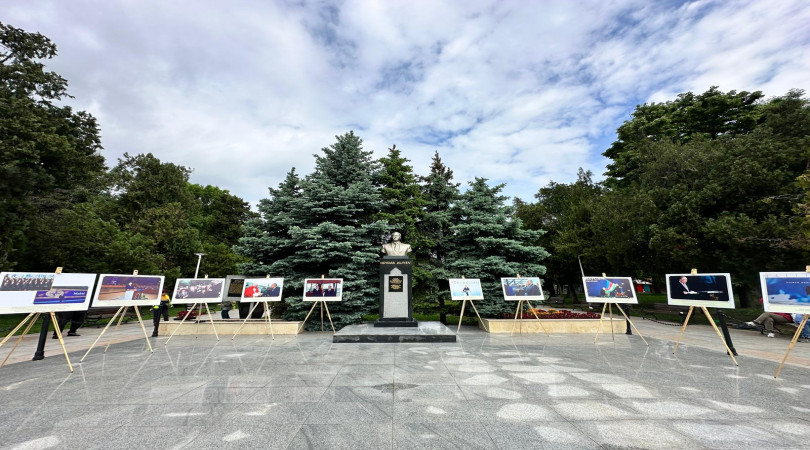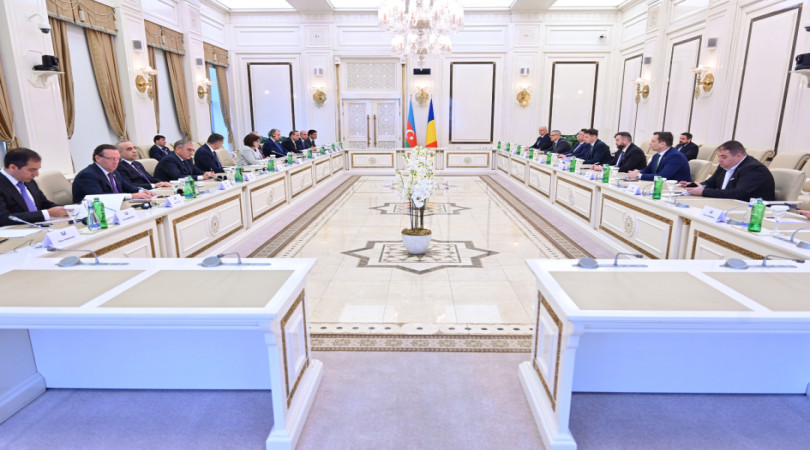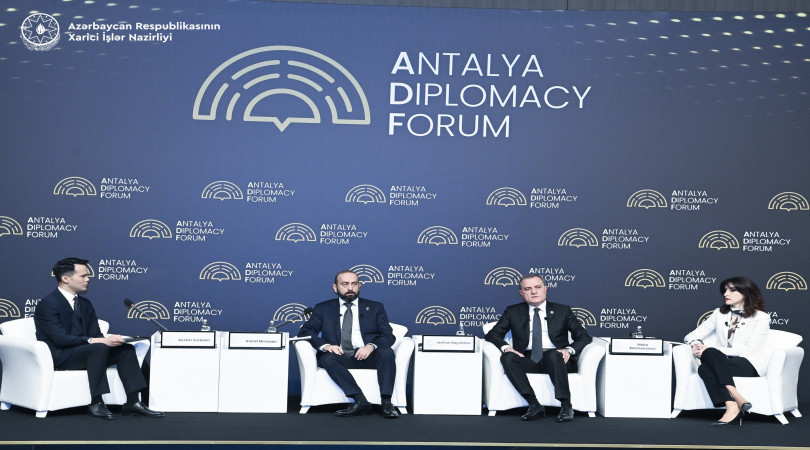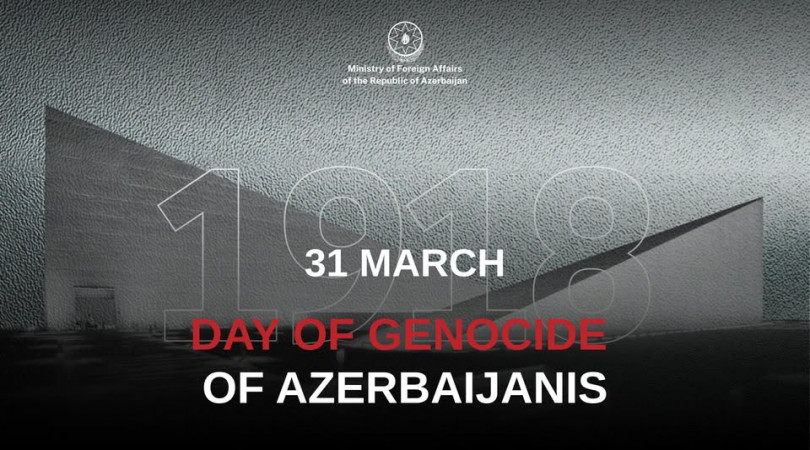Interview with H.E. Dr. Huseyn N. Najafov, Extraordinary and Plenipotentiary Ambassador of the Republic of Azerbaijan to Romania
- Ambassador, could you explain to us why the conflict broke out again in the Nagorno Karabakh area?
In order to fully comprehend why the conflict has occurred, it is important to consider the origin of this specific issue. As a matter of fact, the war for Nagorno-Karabakh is a decades-long conflict in the Caucasus. In the late 1980s, the Armenian population demanded and claimed the land as their own, which is false since Karabakh has always been historically and culturally the land of Azerbaijan. Following this event, Armenian forces have committed a hideous and brutal massacre against the ethnic Azerbaijanis which is called the “Khojaly Genocide”. Numerous requests for ceasefire and resolutions have been made for Armenians to end the occupation, that however, were violated by their side.
The current war situation is another example of the ignorance of the political peace table and inhumane brutality towards innocent civilians.
If you trace the chronology of their actions and statements, you will clearly see that they deliberately went for this provocation. Not so long ago, speaking at the UN General Assembly, Mr. Ilham Aliyev, President of the Republic of Azerbaijan openly said that Armenia was preparing for war and it must be stopped.
In July, they launched an armed attack on our settlements at the state border. This is far from the conflict zone. One civilian and several servicemen were killed then. The clashes lasted for four days. On August 23 a sabotage group infiltrated our territory and was neutralized. Consequently, following the latest news, Armenia launched a military attack on our military positions and civilians on September 27.
We strongly condemn these acts of aggression by Armenia and call on the international community to take decisive steps to force the aggressor Armenia to comply with international law and its international obligations.
Our successful military operation continues. And we are fully determined to liberate our land and to restore our territorial integrity.
2. How many people lost their lives in these days of conflict?
On our side, as a result of shelling by Armenia, 92 civilians have been killed and more than 400 civilians have received wounds of varying degrees of severity. More than 3000 houses, 100 multi-apartment residential buildings have been destroyed, 502 civil facilities have been damaged. The current escalation of events has forced us to launch a counteroffensive, as an adequate response to the military attack. As a result of this counteroffensive, we suppressed a large number of firing points and combat positions of the opposing side and liberated a part of the occupied territories in the northern and southern directions. Therefore, the citizens of Azerbaijan can already live on these lands since they are beyond the reach of Armenian artillery. On 11 and 17 October 2020, the shelling of the territory of Azerbaijan is carried out by long-range artillery from the Armenian side, that uses deadly systems as “Point U” and “Elbrus”, which represent a flagrant violation of the Geneva Convention. Shelling continues on the vicinities of the town Tartar, as it is in proximity to the military zone. It is also important to note, that Armenian forces have launched attacks on the second-largest city of Azerbaijan, Ganja. One missile hit the territory of our largest power plant in Mingachevir. More than 10 of our cities and hundreds of villages are subject to the massive artillery bombardment. On 27-28 October 2020, the armed forces of Armenia hit the city of Barda of Azerbaijan with a “Smerch” multiple rocket launcher system causing serious civilian causalities. As a result of the treacherous missile attack on the city of Barda 21 civilians, including children were killed and more than 70 people seriously injured. This is an old tactic of the Armenian side. Every time they suffer defeats on the battlefield, they resort to such ignoble actions, trying to harm the civilian population and thus attempt to stop the counteroffensive of the Azerbaijani army. In regards to the military losses, the information related to this is confidential. The Azerbaijani public will be informed about this after the end of the active phase of hostilities.
- How does Azerbaijan view the resolution of this 30-year-old war?
We are positive we can resolve this issue on the basis of historical and international justice. At the same time, we have always been active at the negotiating table and the proposals on the table make it possible to resolve this issue. Four resolutions of the UN Security Council, which were adopted in 1993, at a time when the Armenian occupying forces were seizing the territories of Azerbaijan, must be implemented. These resolutions send a very clear signal to the aggressor. They state that an immediate, unconditional and full return of the occupied territories must be ensured. The Armenian side does not comply with these resolutions, ignores them, trying in every possible way to freeze the conflict as much as possible. Therefore, our position is based on the norms and principles of international law and historical justice. Meanwhile, the Armenian position is based on historical lies and violations of the norms and principles of international law. As soon as the resolutions of the UN Security Council are implemented by Armenia, and as soon as Armenia agrees to the withdrawal of its troops from the occupied territories, I am sure that both sides can come to an agreement that will establish peace in the Caucasus in a short time. So this is our position, and this is the attitude of international mediators and co-chairs.
4 . What is the value of the cease-fire agreement concluded the other day? Less than 24 hours after the end of the “humanitarian peace”, conflicts erupted in the area.
Despite the agreement reached during the meeting in Moscow, to observe a humanitarian ceasefire from 12:00 pm on October 10, 2020, the Armenian armed forces continue to grossly violate the agreement. Immediately after the establishment of a humanitarian ceasefire, the Armenian armed forces fired on Agdam and Tartar regions of Azerbaijan. A few hours later, Armenian armed forces tried to attack in the direction of Hadrut and Jabrayil. A medical worker was seriously injured as a result of the shooting by the Armenian armed forces of a sanitary medical vehicle, clearly marked with a white flag, collecting the bodies of Armenian soldiers in the area of Sugovushan. On the night of October 11, Ganja, the second-largest city in Azerbaijan and far beyond the frontline, came under rocket fire by the Armenian armed forces. The attack killed 13 civilians and injured 34 others, including minors.
The shelling of civilians and cities by the Armenian armed forces after the humanitarian ceasefire agreement is another clear example of ignorance and shows that the ceasefire calls of the Armenian leadership are nothing but hypocrisy. Armenia’s deliberate firing on civilians, homes, civilian objects, and medical personnel as part of its aggressive policy against Azerbaijan once again demonstrates the country’s disregard for fundamental norms and principles of international law, as well as shows that it is clearly violating its obligations and is far from the principles of humanism.
Azerbaijan showing once again its goodwill based on the principles of humanism agreed to the second humanitarian ceasefire from 18 October, 2020.
The armed forces of Armenia immediately after the declared ceasefire, starting from 00.02 local time fired at the Jabrayil city, as well as the villages of Jabrayil region liberated from the occupation, located along the river Araz using mortars and artillery. From 00.05 until 03.25 am the armed forces of Armenia violating the ceasefire shelled the positions of Azerbaijan using the large-caliber weapons at the border of two states in the direction of Gadabay and Tovuz regions of Azerbaijan.
Retaining the situation tense during the night on the front ignorant to the agreed truce, the armed forces of Armenia attempted to attack in the directions of Aghdere, Fuzuli, Hadrut and Jabrayil at 07.00 am.
The gross violation of the humanitarian ceasefire by Armenia, already for the second time after its formal declaration demonstrates the continuation of the aggressive policy of Armenia against Azerbaijan and its reluctance to the negotiated settlement of the conflict. It is also an open disrespect by Armenia to the efforts of the mediators, who have been engaged in finding an accord of the sides to the humanitarian ceasefire.
Azerbaijan remains committed to the humanitarian ceasefire, however, Azerbaijan reserves its right to take counter measures to protect its civilians and positions.
Azerbaijani and Armenian Foreign Ministers met with Deputy Secretary of State Stephen E. Biegun on October 24, 2020 and reaffirmed their countries’ commitment to implement and abide by the humanitarian ceasefire agreed in Moscow on October 10, which were reaffirmed in the statement issued from Paris on October 17, in accordance with the October 1, 2020 joint statement of United States President Donald J. Trump, French President Emmanuel Macron, and Russian President Vladimir Putin.
The third humanitarian ceasefire had to take effect at 08:00 a.m. local time (12:00 a.m. EDT) on October 26, 2020. The United States facilitated intensive negotiations among the Foreign Ministers and the Minsk Group Co-Chairs to move Armenia and Azerbaijan closer to a peaceful resolution of the Nagorno-Karabakh conflict.
In a gross violation of the new humanitarian ceasefire, on October 26 at 08.05 am, the armed forces of Armenia subjected to artillery fire the units of the Azerbaijan Army located in the Safiyan village of Lachin region. Later, the city of Tartar and the villages of the Tartar region were under intensive shelling by the armed forces of Armenia.
Another, third time in a row ceasefire regime is blatantly ignored and violated by Armenia; 10 October Moscow joint statement, 18 October reaffirmed commitments by the mediation efforts of Paris and 24 October meeting in Washington and agreement on implementing the immediate humanitarian ceasefire. This is yet another demonstration of willful ignorance by Armenia of its commitments and open disrespect to the tireless endeavors of international mediators. Obviously, as it is declared by the Prime Minister of Armenia, this country does not see a diplomatic solution to the conflict, and the ultimate goal is about continuing the military occupation of the Azerbaijani territories.
Azerbaijan is committed to its agreements and showing respect to the agreed humanitarian ceasefire.
All responsibility for violation of the ceasefire and continued escalation in the region lies with the political-military leadership of Armenia.
We strongly condemn these acts of aggression by Armenia and call on the international community to take decisive steps to force the aggressor Armenia to comply with international law and its international obligations. The full responsibility for the situation in the region lies with the Armenian political and military leadership. It is a disrespect to the negotiations under mediators and another embodiment of Armenian fascism. These heinous actions can never break the will of the Azerbaijani people!
5. Ambassador, what is your vision about the future of Karabakh?
As my President H.E. Mr. Ilham Aliyev expressed it many times publicly, we see Karabakh as a prosperous, safe, secure area of Azerbaijan where people live in peace and dignity, where Azerbaijani and Armenian communities live side by side. The area which we plan to develop as we did in all other parts of Azerbaijan. I can tell you that we have very substantial economic achievements. We have very low level of poverty, it is about five percent. In Armenia it is close to 50 percent. Also very low level of unemployment. Before the pandemic it was around 5 percent, now it is seven. But in comparison with Nagorno-Karabakh which is endemic, it is day and night. So, we can provide much better life, for Armenians who live there, for Azerbaijanis who will return there. The two nations will reconcile, because in the 21st century it is not possible to isolate yourself to commit ethnic cleansing and try to transform de facto situation into secession. The best way for the future of Karabakh, not only Nagorno-Karabakh, but all the Karabakh is a big region of Azerbaijan, is to live in peace in harmony, and to try to become good neighbors again-Armenians and Azerbaijanis.
Thank you. It was a very informative interview Mr. Ambassador.
Thank you.
https://english.intellnews.ro/interview-with-h-e-dr-huseyn-n-najafov-extraordinary-and-plenipotentiary-ambassador-of-the-republic-of-azerbaijan-to-romania/


















